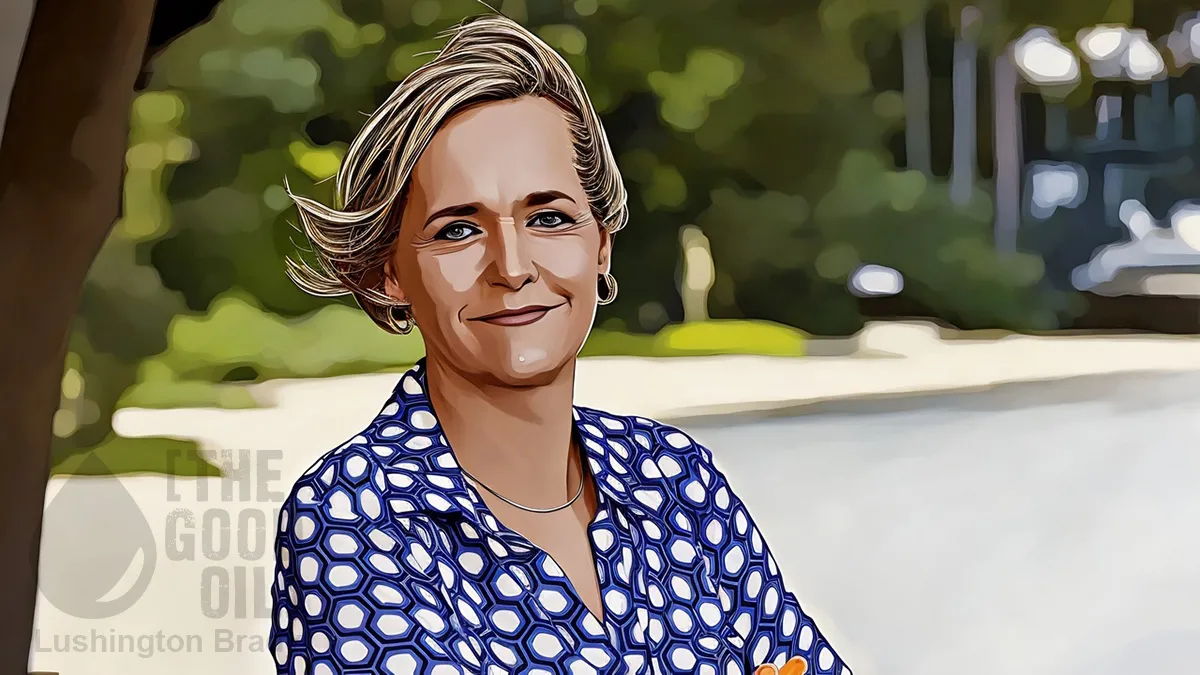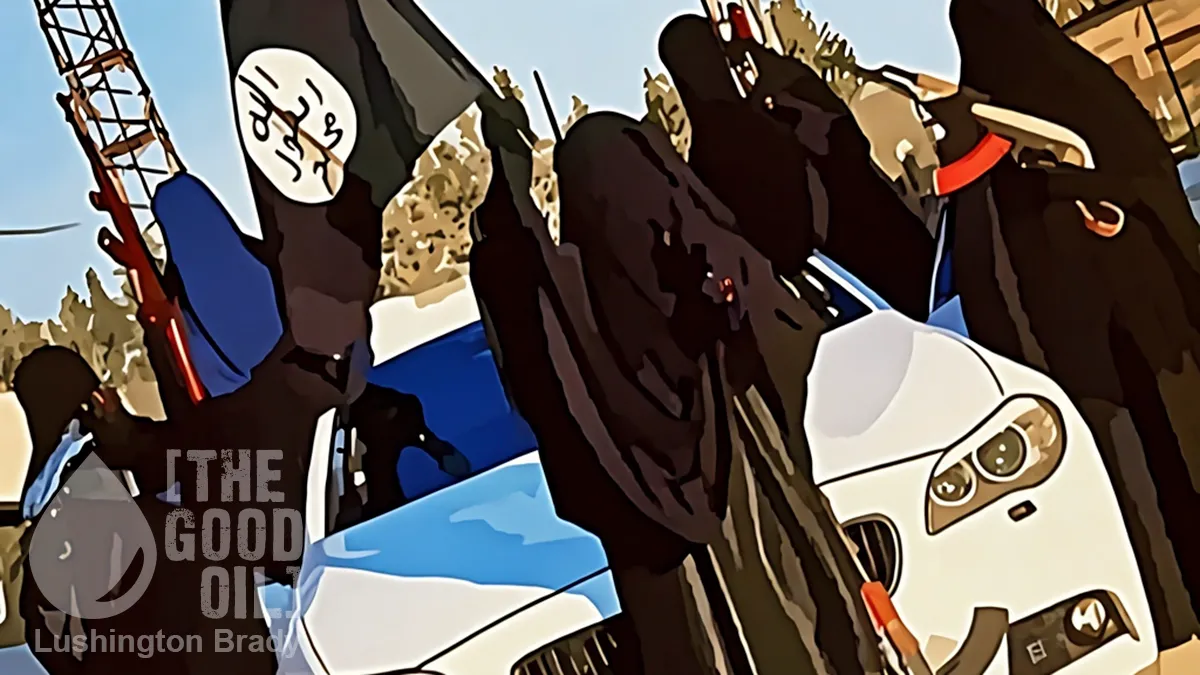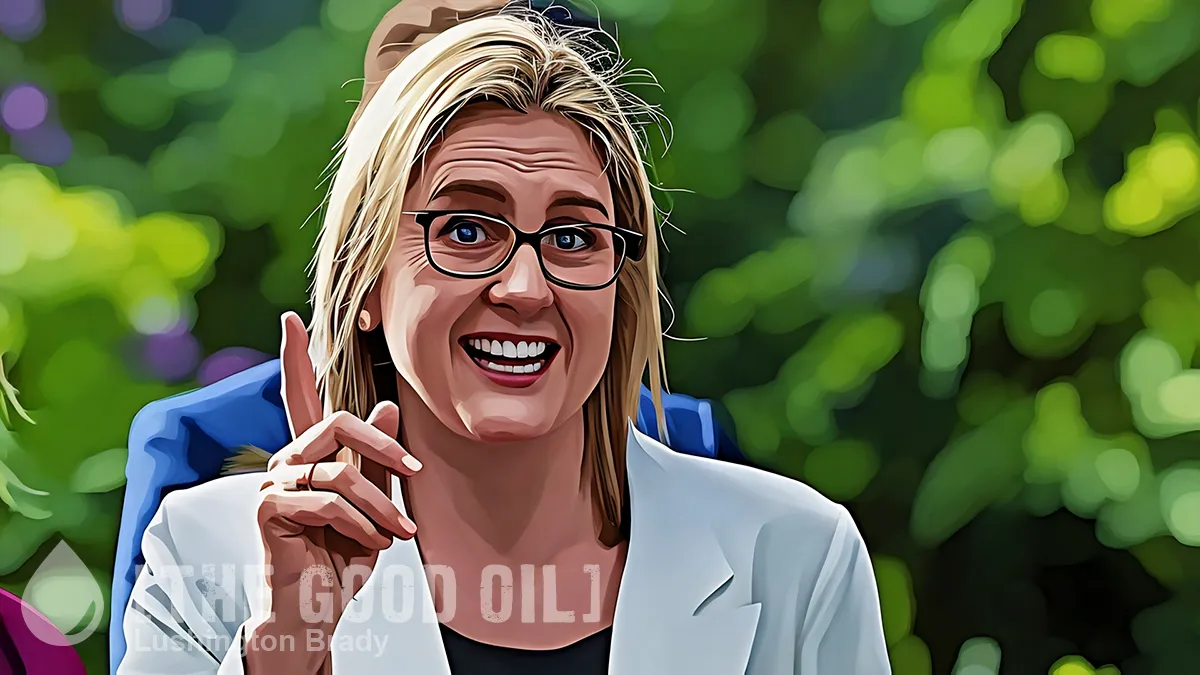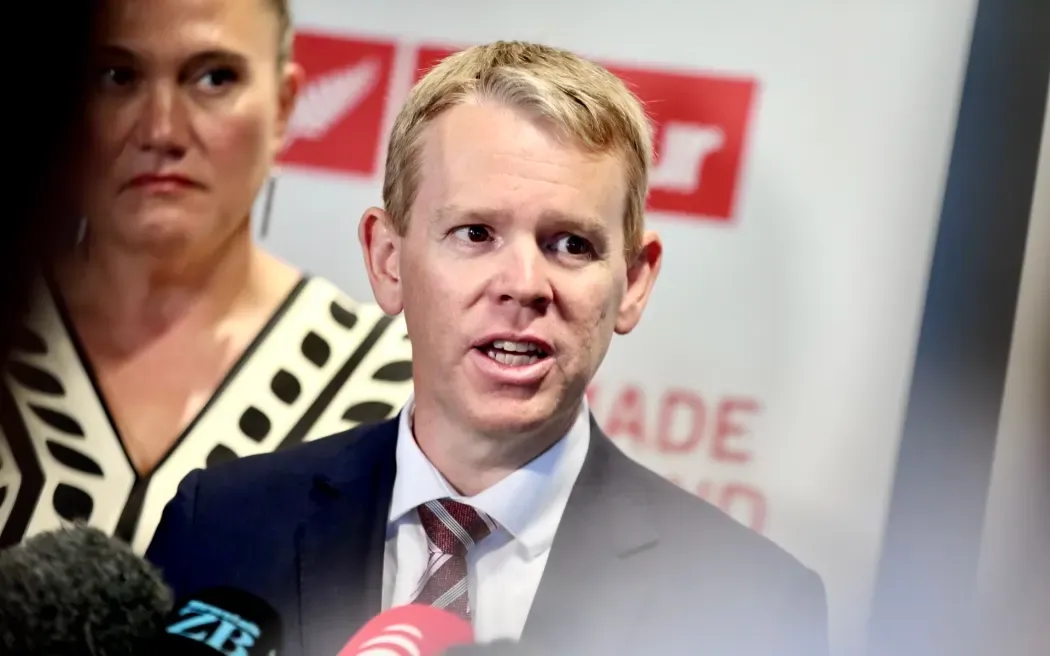Table of Contents
If you don’t have a Silver level membership yet you are missing out on our Insight Politics articles.
Today is a FREE taste of an Insight Politics article by writer Lushington D. Brady
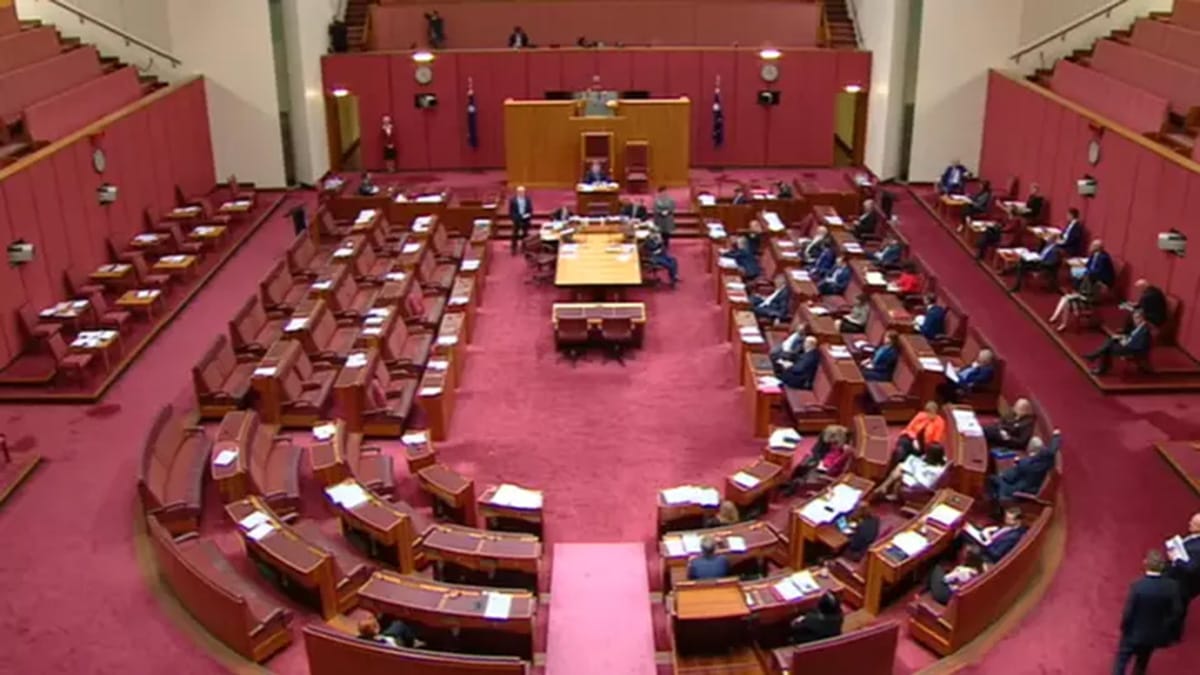
The Lord’s Prayer and the Welcome to Country
Which is better? Tribalism or universalism?
The Australian Senate was thrown into a fit of conniptions last week when veteran senator Pauline Hanson walked out of a “Traditional Acknowledgement”. As they will, the great and good clutched their pearls and shrieked “racism!” Like that’s new. But it was the related response of Senate President Sue Lines that was the more ominous.
Lines’s recitation of the Traditional Acknowledgement was a very recent addition to the opening of the Senate, and immediately succeeded the traditional ceremony: the recitation of the Lord’s Prayer. Lines stated that she wants to get rid of the Lord’s Prayer and keep the Traditional Acknowledgement.
This is a very telling agenda: not just for what Lines and her like-thinkers want to get rid of, but what they want to impose. What, respectively, do the Lord’s Prayer and the Traditional Ackowledgement invoke, ask of their participants, and tell us about the society that imposes each?
In summary, the Lord’s Prayer invites us to look within ourselves and recognise our own flaws and wrongdoings, and to look outside ourselves and see ourselves reflected in others and to seek to forgive, as we forgive ourselves.
“Traditional Acknowledgement” is a form of “Welcome to Country” ceremony. It is the literal statement that we are strangers, even if we were born here.
Atheist Sue Lines, who bases her objection to the Lord’s Prayer on its religious nature, apparently hasn’t considered that Welcome to Country/Traditional Acknowledgement is also a religious ceremony.
The difference between them is that the Lord’s Prayer is universalist and inclusive; Welcome to Country is tribalist and exclusive.
Let’s look at each in more detail.
The Lord’s Prayer, also known as the Our Father or Pater Noster, is probably the best-known Christian prayer. It’s recorded in two Gospels as the direct advice from Jesus on how to pray. It consists of a short invocation to God, followed by seven petitions.
Although the prayer is Christian, it was taught by a Jewish preacher, and invokes the Abrahamic God. So, it can appeal to both the former religions. Although it’s not technically true, as is often claimed, that all three Abrahamic faiths worship “the same God”, the message of its first three petitions: obedience and surrender to the Divine Will, are as understandable to a Muslim as a Jew or Christian.
But the later petitions, although still, naturally, couched in Christian language, become more and more universal in their morality exhortations.
“Give us this day our daily bread”. Not only should we be grateful for what we have, but we should remember that “man shall not live on bread alone”. Abundance goes beyond material wealth.
Perhaps the most profound, certainly the most difficult, petition is to “Forgive us our trespasses, as we forgive those who trespass against us”. Like the admonition to “Love thy neighbour as thyself”, this is a profound challenge. We beg forgiveness, but we are entitled to ask for forgiveness in the same manner in which we extend forgiveness to others.
This petition explicitly exhorts us to look outside ourselves and consider the ways in which we treat others.
Finally, the prayer petitions for the strength to resist the temptation to do wrong. It’s a recognition of human fallibility. To be free creatures is to be capable of evil: thus we beg for the wisdom and discernment necessary to steer clear of temptation and wrongdoing. But, knowing that we cannot always resist such temptation, the prayer petitions for guidance and strength to “deliver us from evil”.
So, that’s the essential message of the Lord’s Prayer: humility and compassion.
Why would the Senate President object to that? Because, Lines says, “as an atheist” she “cannot continue to say a Christian prayer”. Which begs the question: as an atheist, why does Lines have no objection to an Aboriginal religious ritual?
Leaving aside its spurious modern origin, that “Welcome to Country” claims to be a continuation of Aboriginal ritual. That ritual supposedly “acknowledges the Traditional Custodians of country throughout Australia and their connections to land, sea and community”. In other words, this is as much “magic” and “sky fairies” as Christian belief.
Lines is typical of the sort of porch atheist who sneers at magical thinking when it wears a cassock, but bows to it when it wears a grass skirt or is daubed in ochre.
Firstly, it’s an inescapable fact that Welcome to Country was wholly invented, in the late 70s, as an expedient response to a petty squabble. A troupe of four Maori and Cook Islander performers were scheduled to perform at the Perth Arts in 1976. But they refused to go on stage until they had been “welcomed in an Indigenous ceremony”. No such thing existed, of course – so a local Aboriginal theatre group made one up on the spot.
The reminiscences of Richard Walley, who came up with the formula, are explicit in their magical thinking:
“I asked the good spirits of my ancestors and the good spirits of the ancestors of the land to watch over us and keep our guests safe while they’re in our Country. And then I talked to the spirits of their ancestors, saying that we’re looking after them here and we will send them back to their Country.”
Ancestors, spirits… how is this any less religious than the Lord’s Prayer?
In any case, the Polynesians were mollified and the locals were pleased at having coined a hit, so to speak.
The evidence for any such “ancient ritual” is sparse, indeed. Contemporary accounts record that Aboriginal groups were as likely to “welcome” strangers with spears as with any kind of ceremony.
Some European explorers relate what appear to be some kinds of ritualistic greetings, in some places, but these were neither universal or uniform. The most sympathetic written account of pre-Settlement Aboriginal life, William Buckley’s memoirs of his decades spent living as one of the Wathaurong people of southern Victoria, shows that violence was the commonest result of meetings of different tribes, clans and bands.
This is in keeping with the essence of the thinking behind Welcome to Country: tribalism and mutual suspicion.
One only goes out of the way to welcome a stranger when strangers are normally viewed with hostility as trespassers and interlopers. Only strangers have to knock at the front door: friends and relatives just let themselves in.
Read again, Walley’s characterisation of the newly-minted ceremony: “our country”, “their country”. The mindset behind Welcome to Country is the starkest possible contrast to the mindset of the Lord’s Prayer. Instead of a universalist exhortation to understanding, inclusion and compassion, it underlines that strangers are just that.
More notably, it is grounded in the notion that the “country” belongs solely and forever to one group, exclusively because of their race. No matter how long you’ve lived here, no matter how many generations of your ancestors are buried here, if you’re not of the right tribe, you will never belong here. This is “their country” not your country.
Bugger that: I do not have to be “welcomed” to the country I was born and have lived all my life in.
But, as per the Lord’s Prayer, I will endeavour to forgive those who wish to treat me as a stranger in my own land.
If you enjoyed that FREE taste why not subscribe to a SILVER level membership today?
You will not only get access to Insight Politics articles like the one above but you will also gain access to all our puzzles, SonovaMin and BoomSlang’s fantastic cartoons, and our private members’ forum MyBFD as well as enjoying ad-free viewing.
$25 a month ($6.25 a week) (89c a day)
$300 a year


